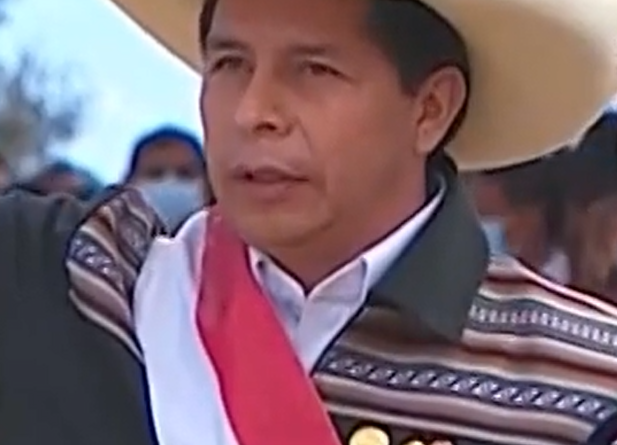Peru Flirts with Leftism in Upcoming Election
Sergei Valenzuela
Staff Writer
In the coming months, Keiko Fujimori will face off against Pedro Castillo in Peru’s runoff presidential election following inconclusive results in the first round of voting, reports BBC News. Before the mid-April election, Peru experienced a lack of political identity and consistent authority. The country has gone through four presidents – three in one week, with one impeached and one killing himself to avoid arrest – within the last five years, states the New York Times.
Keiko Fujimori is a conservative former congresswoman and daughter of Alberto Fujimori, an ex-president currently imprisoned for human rights violations during his reign. Fujimori represents the Popular Force Party with a platform built on supporting free-market policies, including expanding the mining industry to stimulate the economy. Through these initiatives, she claims that she will create two million jobs by developing infrastructure and investing in health and education, reports BBC News. Fujimori lost in the 2011 and 2016 presidential election run-offs, making this her third run.
Despite her promising platform, Fujimori is being investigated for money laundering and corruption, two charges she claims are politically motivated. Between 2018 and 2020 she served 13 months in prison. Her criminal past and questionable morals may be the reason why she won only 13 percent of the votes in the mid-April elections and continues lagging behind her contender Pedro Castillo.
According to BBC News, Pedro Castillo is a 51-year-old schoolteacher and former mayor. Running on a leftist platform for the Free Peru party, Castillo plans to nationalize key economic industries such as mining, oil, hydropower, and gas. This is a campaign promise Castillo since retracted, stating “I completely reject those that say that Pedro Castillo is going to nationalize.” He appeals to the lower-income individuals from areas with low state presence, who feel historically underrepresented. Castillo won 19 percent of the votes in comparison to Fujimori, but not by a large margin.
After years of corruption and political turmoil in Peru, voters have lost confidence in the ability of their political leaders to deliver and uphold democracy, let alone serve their interests. A poll recorded by the Institute of Peruvian Studies states that 28 percent of the Peruvian population would rather abstain than choose any of the current candidates. The Guardian reports other polls to indicate that voter disenchantment continues to rise in response to three presidents failing to control the COVID-19 pandemic.
A Castillo win, who is currently polling ahead of Fujimori at 41 percent according to a Datum International poll, would have Peru heading in a more reformative direction. Re-writing the constitution would not be an easy task, especially with the country’s longstanding unstable political climate. Castillo winning would likely increase representation for Peru’s low-income citizens who want their interests prioritized over those of the private sector. However, if Castillo reverses his decision not to nationalize key industries, state ownership of the country’s most productive industries might expose the citizens to higher levels of politically motivated corruption.
Unfortunately, no matter what candidate rises to the occasion, Peru’s political problems run deeper than just an election. Peru’s political system has exposed its deep endemic corruption and inequality in its governmental and healthcare institutions. This was exemplified during the COVID-19 pandemic. Peruvians, who are suffering from surging cases, had little to no access to medical assistance. Hospitals were short on supplies and workers while high-ranking government officials used their status to access the country’s first vaccine doses in a scandal now dubbed “vaccinegate.” According to The Washington Post, some voters from the mid-April election “found themselves lining up Sunday both to cast a ballot and to secure tanks of oxygen for critically ill relatives.”
Overall, Peru’s political spectrum is so wide, inconsistent, and polarizing. With a spectrum so broad, it still fails to represent the Peruvian people. Alfredo Torres, the head of Ipsos Peru, a local pollster, called the mid-April elections the “most fragmented elections in history,” to Al Jazeera. This system leaves Peruvians again with a lack of confidence in their country and its future.
Photo courtesy of Presidencia de la República del Perú (Wikimedia Commons)


